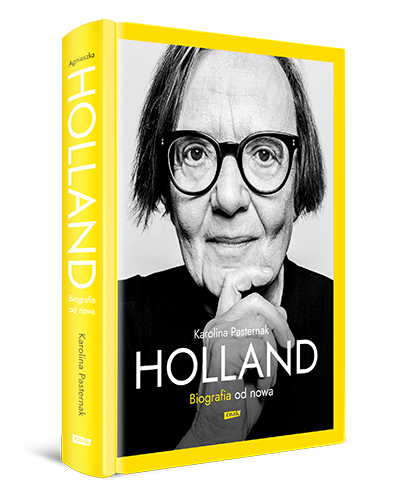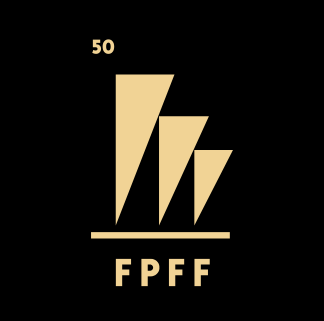Meetings around books at the 47th PFF

As many as 12 meetings around book will be held at the 47th Polish Film Festival in Gdynia. Join us for the conversations with the authors and editors of the following titles:
Paweł Biliński, Kinematograf o sobie. Autotematyzm w polskim filmie fabularnym, Wydawnictwo Uniwersytetu Gdańskiego, 2021
The first monograph of autothematic tropes in Polish cinema. The author refers to the most important theoretical and historical findings and traces the development of reflexive motifs in feature films, distinguishing the most important thematic and genre dominants of this type of audiovisual work. He applies an autothematic perspective not only to works widely appreciated but also to works forgotten or considered unsuccessful.
Film polski współcześnie: od głównego nurtu do eksperymentu, red. Marta Giec, Artur Majer, Wydawnictwo Szkoły Filmowej w Łodzi, 2021
The authors help the reader to discover a dynamic and diverse phenomenon in statu nascendi, constantly shifting boundaries and changing forms, escaping descriptions and categories. They show modern Polish films from various perspectives, and the mosaic of competently elaborated topics creates a non-obvious whole, encouraging further studies on Polish cinema in its broadest sense.
Hoffman dokumentalista, WFDiF, 2022
A collection of documentary films by Jerzy Hoffman produced by Documentary Films Studio. In celebration of the 90th anniversary of the director’s birth, his works have been digitally-restored after almost seventy years on the shelves of Documentary and Feature Films Studio for the enjoyment of future generations. In addition, the DVD features an interview with Jerzy Hoffman conducted for the filmmaker’s jubilee.
Magda Miśka-Jackowska, Kilar, seria „Małe monografie”, PWM, 2022
Wojciech Kilar “made others feel that they were dealing with someone or something familiar”, says Magda Miśka-Jackowska. A product of honest affection, the book is a charming story about the composer’s life, his wonderful personality, wit, everyday life and dazzling career and the phenomenon of his constant presence. It is a one-sitting read for everyone.
Kino w cieniu kryzysu. Studia i szkice o polskiej kinematografii pierwszej połowy lat 80., red. Piotr Kurpiewski, Piotr Zwierzchowski, Wydawnictwo Uniwersytetu Kazimierza Wielkiego, 2022
The book contains several texts by renowned scholars of Polish cinema focusing on the characterisation of the Tenth Muse in the declining phase of the Polish People’s Republic. The editors of the volume wanted to provoke a discussion on the Polish film of the 1980s well aware of the peculiar omission of that period in contemporary film studies.
Anna Michalska, Jakub Wiewiórski, Nakręcone w Łodzi, Muzeum Kinematografii w Łodzi, 2022
The authors present one hundred and fifty-three feature films shot in Łódź. They go behind the scenes of their creation, describe their locations, comment upon their reception among viewers and critics, and consider various contexts related to the city. Through interviews with directors, set designers, cinematographers, actors, producers and some lucky people from outside the industry who managed to get on the set, they uncover many little-known facts and take the reader on a film journey.
Karolina Pasternak, Holland. Biografia od nowa, Społeczny Instytut Wydawniczy Znak, 2022
The first biography of Agnieszka Holland is full of unknown and surprising facts. An icon and, as younger people sometimes refer to her, the godmother of the entire generation of filmmakers, she talks about her childhood, her life as a single refugee mother in Paris, and her creative work in the men’s world of cinema. Karolina Pasternak portrays a strong, awe-inspiring artist and Agnisia, a woman seen through the eyes of her loved ones.
Miłosz Stelmach, Przeczucie końca. Modernizm, późność i polskie kino, Wydawnictwo Naukowe Uniwersytetu Mikołaja Kopernika, 2020
The book explores the land of post-war auteur film as part of a vast continent, for which cinematic modernism was one of its most important areas. It traces the formation of modernist discourse, institutions and poetics in international and local contexts, as well as the subsequent manifestations and aesthetic and philosophical consequences of the functioning of the modernist paradigm in Polish cinema. Particular emphasis is on the late phase of modernism, which dates back to the 1970s and (to a lesser extent) the decade that followed.
Agata Tecl-Szubert, W stronę niemożliwego. Zespół Filmowy „Silesia” 1972–1983, Silesia Film, 2022
Rich in unique archival material, the book tells the history of a bright star in the sky of Polish cinema. Established in Katowice in 1972, Silesia was the first and only locally-active film company back in the days. Originated by Kazimierz Kutz, it developed its production potential thanks to the efforts of Ernest Bryll and allowed Andrzej Barański, Grzegorz Królikiewicz and Wojciech Wiszniewski to shoot their debuts.
Michał J. Zabłocki, Kompendium produkcji filmu fabularnego. Ekipa filmowa: przedmiot umowy i zakres obowiązków oraz słownik terminologii. Tom 5, Cineo Publishing, 2022
This comprehensive book for students, young filmmakers, producers and production managers elaborates on a film crew, responsibilities and contractual terms and conditions. It also provides a dictionary of terminology from various areas (such as technology, set design, production and post-production). It’s a vast compilation of practical knowledge penned by an accomplished filmmaker, professional and film school lecturer.
Piotr Zwierzchowski, Filmowe reprezentacje PZPR, Wydawnictwo Uniwersytetu Kazimierza Wielkiego, 2022
Proving that the Polish United Workers’ Party occupied the attention of filmmakers more often than one might think, the author looks at the history of Polish film from a different angle than usual. By recalling titles long-forgotten, he reveals the everyday life of cinema. By looking at classics from a different perspective, he broadens the room for interpretation, allows us to explain their fate and read more fully into their reception at the time.
Wojciech Marczewski, Damian Jankowski, Świat przyspiesza, a ja zwalniam, Więź, 2022
Wojciech Marczewski, author of the films Nightmares, Shivers and Escape from the ‘Liberty’ Cinema, is one of the most important directors in the history of Polish cinema. What is the source of his artistic sensitivity? What is he passionate about today? Can we still count on a new film after twenty years of silence? In a conversation with Damian Jankowski, the great film artist answers questions about creative fulfilment, happiness, the passage of time and the taste of life.


